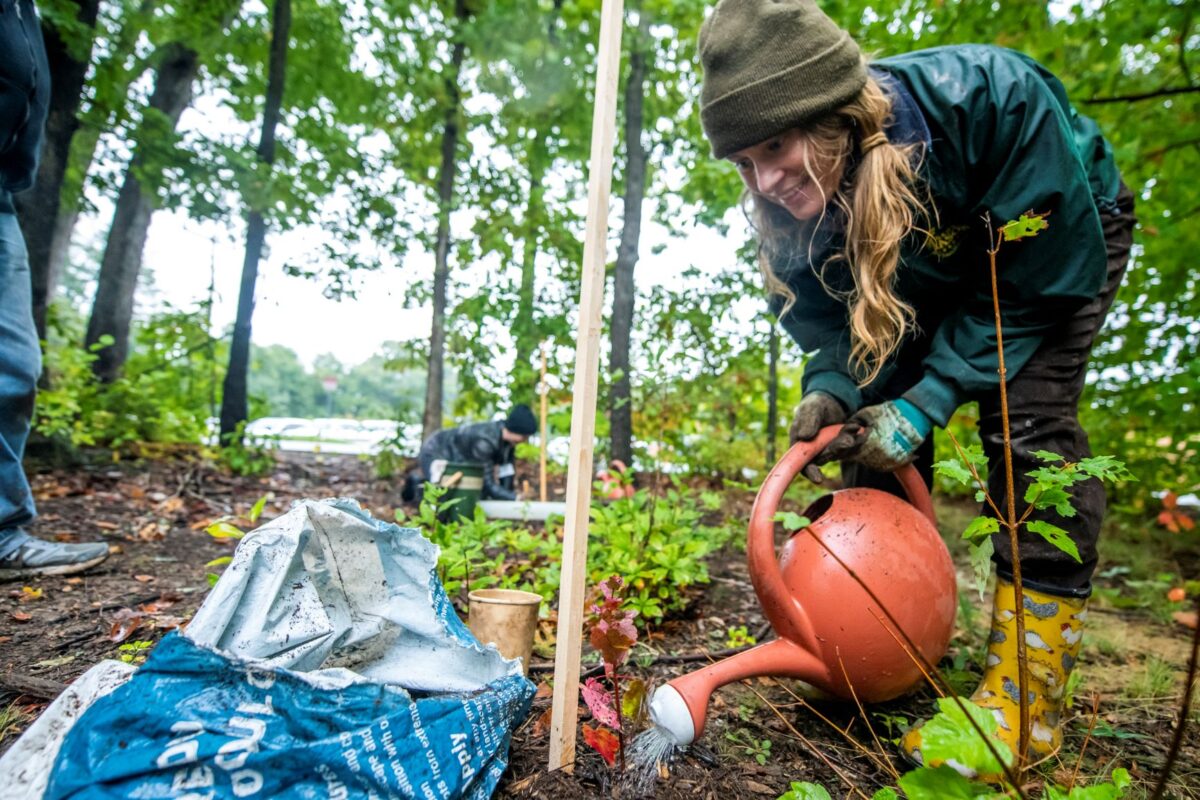By: Sabriyyah Abdullah, a Mason student majoring in Art History
“Anything else you’re interested in is not going to happen if you can’t breathe the air and drink the water. Don’t sit this one out. Do something.” – Carl Sagan
Since the beginning of time, our planet has provided humanity with a home and resources that keep us alive and supported. People have not cared well for our Earth in return, however. Over time, humans have overused our planet’s resources without replenishing those resources or supporting our natural environment well. The accumulation of waste, neglect, and greed has harmed Earth so much that the effects have resulted in global warming, climate change, and the associated environmental crises that are impacting many people around the world. The good news is that we all have the power to improve the well-being of our home planet. Environmental advocates have raised awareness about this crucial topic and are encouraging us as individuals and governments worldwide to practice sustainability. Let’s explore why it’s important to live more environmentally friendly lives, and how to do so.
Why is This Important?
Our natural world supplies us – and all other living things – with so many resources that we need to survive that we may not even realize how much our well-being depends on those resources. Being mindful of the specific natural resources we’re using regularly, as well as how much we’re using, is an important step in saving it and our future. Even making a few strategic, small choices to start can have a positive impact and motivate us and others around us to do more over time.
Well-Being Benefits
There are various significant well-being benefits of making sustainable and eco-friendly choices. We can improve our physical health by using products that are free of harmful chemicals. We can help reduce the amount of pollution and waste that we use and that the environment experiences. We can also find a sense of encouragement and enjoyment from helping our Earth, as well as a sense of purpose that can motivate us to encourage others to live more environmentally friendly lives.
Key Practices
Here are some key environmentally friendly practices to consider starting:
- Using public transport more often
- Using eco-cleaning products or making your own
- Reusing items like water bottles, shopping bags, and cutlery
- Opting for a reusable water canister or beeswax wraps for food storage
- Buying more locally grown food and growing a garden
- Reducing the amount of water you use
- Composting leftover food and properly storing leftovers
- Turning out lights when you leave a room to reduce the electricity you use
A Food Practice Example
When going to a grocery store, choose glass containers instead of plastic for food storage and cleaning supplies. Make a list of food items before entering the store to stick to what you truly want to buy rather than adding items on impulse. Choose products with clean ingredients over ones you don’t need and that may be more harmful. Go to a local farmers market instead of buying store produce. Support ethical and environmental-focused companies and brands.
Additional Resources
- Eco-Friendly Tips for Students
- 25 Simple Ways to Be Eco-Friendly at Home
- 100+ Easy Ways to Be More Eco-Friendly
- The Ultimate 20-Step Guide to Eco-Friendly Living
- Go Green: 10 Tips for a More Sustainable Lifestyle
- 50 Simple Ways to Make Your Life Greener
- 20 Low-Waste Swaps for Teens + Students
- Creating an Eco-Friendly Early Years Setting
Write one of these Thriving Together Series features! We’re looking for contributions on all topics related to well-being. Read other Thriving Together Series articles here and contact us at cwb@gmu.edu for guidelines. Thank you for helping our Mason community thrive together online!






















